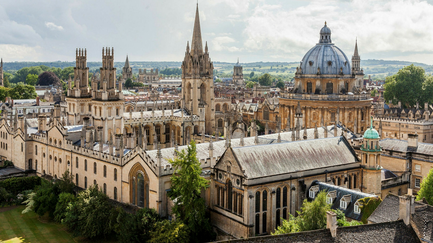
Apply to a foreign university with confidence
- Properly fulfilled documents
- Perfect motivation letter
- Support from a personal mentor
- Offers from several universities
Bachelor of Medicine, or MB, is the junior academic title to award to graduates who completed the bachelor program at medical schools or university. In this article, we will cover requirements for Bachelor of Medicine degree, its titles and perspectives.
Free consultation





Bachelor of Medicine, or MB, is the junior academic title to award to graduates who completed the bachelor programme. It applies to countries that joint to the Bologna system of tertiary education and in countries of the British Commonwealth. This degree is annulled in the USA and Canada currently. Instead, the graduates are given the title of Doctor of Medicine (MD, Medicine Doctor).
Those who apply or want to apply for the Bachelor of Medicine degree at medical schools or at any university, should submit the Higher Education Diploma showing perfect academic performance and high English language proficiency test results. It is too competitive and challenging to become a medical student and thus, most talented and diligent applicants are at the chance to be enrolled. Yet, the applicant should pass one or several entrance exams at most medical institutions (Biology is compulsory, Chemistry is optional though it varies from university to university).
If the applicant shows low academic records, low English language proficiency scores or entrance exam scores are not sufficient to get enrolled to tertiary education institution, the former may want to use the chance to prepare for the next try within a year. This service is offered at prep-courses of specific pattern. Each medical school owns its research unit, though. And this explains why not all medical institutions admit those who complete prep-courses. Some tertiary education medical institutions afford with their own pre-university courses and those who complete them effectively are enrolled at respective universities without entrance exams.
The programme lasts for seven to eight years. At that, the student learns elementary disciplines for five to six years and the next two years the applied work is specified for them. Some medical institutions set 4-year bachelor programme followed by internship for two years. Higher and strict requirements are set to such graduates, though. Such universities mainly admit graduates of various medical colleges of elementary education. Students learn the extensive sweep of disciplines in medicine for the first five to six years. The internship gives more profound knowledge to get qualification.
Mostly, medical establishments award various degrees to graduates upon completion of the programme, including MB (Bachelor of Medicine), MBBS (Bachelor of Medicine, Bachelor of Surgery)/ in Latin languages, the title looks like MBChB, MBBChir.
At most medical institutions, students who learn one of disciplines more fundamentally and get involved in researches are awarded BSc (Bachelor of Science) along with MBBS. They are not required to write a thesis upon graduation since the study results are summed up of the various discipline records.
Upon studying theory and starting the internship, the bachelor is permitted to proceed with registration at the Medical Board of the respective state. Entering to the Medical Board is possible upon completion of the internship period.
A Bachelor of Medicine registered at the Medical Board is put to high perspectives to get a well-paid and promising job in the area of concentration. A medical doctor specialty is respected and demanded everywhere. In most countries, apart from the USA and Canada, a medical practitioner should take part in researches and write a thesis to get an MD.
60+ countries
we work with
$1,000,000 saved
by students through scholarships
6,400 offers
our students got